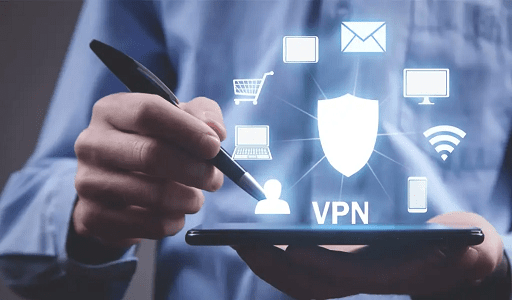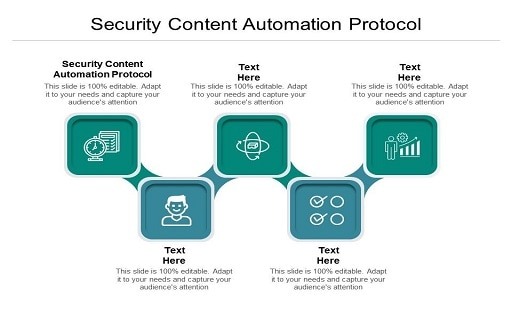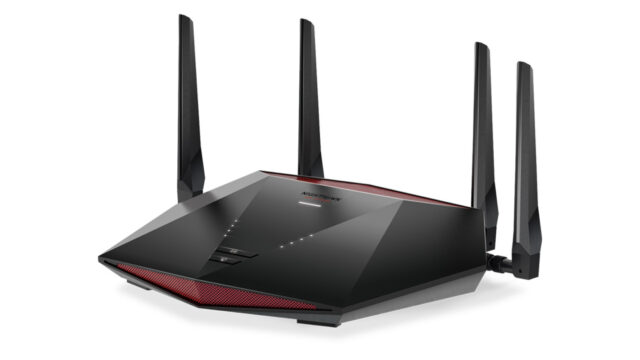VPN Disadvantages: By using a virtual private network, or VPN, you can protect your online activities by hiding your IP address, gain access to content that is blocked in your region on streaming websites, and save money on online purchases by selecting a location that is more advantageous to you.
You could consider these services to be a one-stop-shop answer to all of your requirements for maintaining your online privacy and safety.
On the other hand, as is the case with the vast majority of things, there is another side to the coin. If you are aware of the potential drawbacks and limitations of virtual private networks (VPNs), it will be easier for you to make educated decisions concerning your browsing experience, as well as your online privacy and security.
This article will discuss some of the drawbacks of virtual private networks (VPNs), which you should be aware of.

VPN Disadvantages: It slows down the internet speeds
A slow connection is one of the few things that might be more irritating to a person who is interested in technology or who uses the internet.
One of the primary drawbacks of using a virtual private network (VPN) is that it can slow down your connection speed, sometimes to the point that it is obvious to the user.
It is necessary to have a working knowledge of how a virtual private network (VPN) operates in order to comprehend why anything like this takes place.
Simply put, whenever you access a website or app, you are establishing a connection between the server of the website or app and the device you are using to access it. This connection is made possible by the servers provided by your Internet service provider.
Because of this connection, data can be transmitted in both directions. When you view a website while connected to a Virtual Private Network, or VPN, the connection is encrypted and passed through a secure tunnel. Because of this, accessing the website may take somewhat longer.
When the speed of your virtual private network (VPN) is too slow for your liking, the good news is that there are some helpful solutions at your disposal.
Some of these solutions include upgrading to a more expensive VPN service, selecting the appropriate server location, and substituting an Ethernet connection for a wireless one.
Virtual Private Networks can give you a fanciful sense of safety
When you browse the internet, you run the risk of encountering potentially harmful websites, as well as phishing scams, data breaches, and other threats. Even while virtual private networks (VPNs) often provide you with an additional degree of security and privacy by encrypting your data and masking your IP address, it is important to note that VPNs are not failsafe.
Encryption is one of the most essential elements of a virtual private network (VPN), but not all VPN providers encrypt data in the same way. If you are utilizing a VPN service that is either free or of questionable reliability, the level of encryption may be inadequate or nonexistent, leaving you vulnerable.
Even if you are utilizing a premium VPN service, you still need to exercise caution whenever you are clicking on links. If you are deceived into accessing malicious content or visiting websites that contain phishing scams, then your system could still be affected.
Having said that, using a virtual private network (VPN) isn’t the only way to ensure your safety when browsing the internet. There are other methods available, such as developing secure passwords and updating them frequently, installing an antivirus program, and avoiding using public wireless networks.
Some providers keep VPN Logs
You probably do not want uninvited individuals to pry into your online activities in any way, shape, or form. Because of this, you need to be careful when selecting a virtual private network (VPN) provider and make sure that they don’t monitor your internet behavior. If they do, then the VPN will be useless to you.
What is a VPN?
When you connect to a virtual private network (VPN), the data you send and receive is encrypted as it passes through the VPN provider’s server.
This keeps your online activity private. While this will prevent your internet service provider or any other third parties from being able to monitor your online activities, you will essentially be handing over all of your private information to the VPN provider.
In addition, despite the fact that the vast majority of VPN services assert that they do not monitor or log user activities, this is not always the case. When selecting a Virtual Private Network provider, however, you should keep these considerations in mind.
Virtual Private Networks are Illegal in some countries
There is a good chance that you were unaware that using a virtual private network (VPN) in certain locations could result in a lengthy prison sentence or a heavy fine.
Indeed, the usage of virtual private networks (VPNs) is subject to stringent laws and restrictions in several nations. This is because Virtual Private Network (VPN) solutions enable users to circumvent limitations imposed by the government and access content that would otherwise be restricted.
There are some countries, such as Turkmenistan and Belarus, in which the usage of virtual private networks (VPNs) is not only unlawful but also completely prohibited by law.
You can use virtual private networks (VPNs) that have been approved by the government in some other countries, such as China; nevertheless, VPN providers in China are required to offer access to the Chinese government on demand.
Having said that, before going to a different country, it is essential to do some research and find out if utilizing a virtual private network (VPN) is permitted there.
VPN Disadvantages: VPNs increase data usage
Does connecting to a VPN use up data on your device? Or, and this is the most crucial question, does it increase the amount of data you use?
The vast majority of the time, data will be used by any service that requires a connection to the internet. If you have a limited quantity of data to use, this may not be a significant concern when you use an unmetered connection on your devices; but, if you do have a limited amount of data to use, this may be an important factor.
Because the data is encrypted and routed through the VPN server, utilizing a virtual private network (VPN) will, unfortunately, result in an increase in your overall data usage.
This indicates that if you have a data cap, you may exceed it sooner if you use a VPN than you would otherwise. In addition, the volume of data consumed is determined to a considerable extent by the encryption mechanism that your VPN service uses.
This is because the protocols that offer the highest level of security also use the most resources. If you were trying to circumvent your data use limit by making use of a virtual private network (VPN), you would likely need to look at other potential solutions.
The inability to access some websites
You might subscribe to a virtual private network (VPN) service for a variety of reasons, the most important of which is to access content that is geographically restricted. You might, for example, be interested in watching a show on Netflix that is not accessible in your location.
Alternatively, if you want to get better deals on the things you buy online, you may try changing your IP address to a different country.
However, it is important to keep in mind that some internet services, such as Netflix, restrict the content that users of VPNs can watch. They must do this to comply with licensing agreements, as certain regions are covered by the rights held by other streaming sites to specific titles.
In light of this, it is essential to keep this in mind whenever you use a virtual private network (VPN), as certain of these providers are making concerted efforts to prevent VPN connections from being established.
VPN Disadvantages: A good VPN is expensive
Paying for a premium VPN service of sufficient quality is one of the most effective ways to get around the majority of the drawbacks described before.
Even if there is a wide selection of free virtual private networks (VPNs) to choose from, it is essential to keep in mind that these services may not provide the same level of safety and dependability as commercial VPNs.
If you are concerned about maintaining your anonymity online, you must avoid using free virtual private networks (VPNs).
The vast majority of free virtual private network services maintain logs and sell your information to third parties. In addition to this, the bandwidth, speed, and server options that they offer are typically quite restricted.
Paid Virtual Private Network (VPN) services often offer a connection that is significantly more secure, improved speeds, and access to many server locations.
Should I use a VPN?
Before signing up for a virtual private network (VPN), it is vital to have a solid understanding of the service’s constraints and potential drawbacks. This will allow you to make an educated choice that will meet your requirements for maintaining your online privacy and security.
Even though there are a few drawbacks to utilizing a virtual private network (this is especially true for free services), the benefits of using a VPN outweigh the negatives, especially if you pay for a quality VPN service.
When it comes to safeguarding one’s privacy while using the internet, signing up for a reputable virtual private network (VPN) service is among the most effective strategies.
There are, however, various methods available to ensure the privacy of your sensitive information and to safeguard your identity while you are online.
Would you like to read more about VPN disadvantages-related articles? If so, we invite you to take a look at our other tech topics before you leave!
![]()













